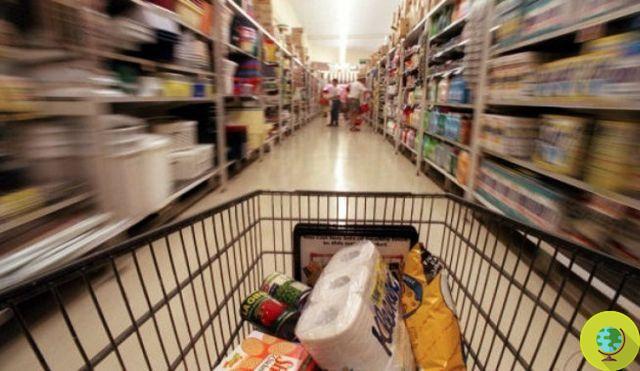
Supermarkets are the easiest place to come into contact with the coronavirus in the UK, according to a survey
Don't store avocado like this: it's dangerousSupermarkets are the places most frequented by people who, soon, will discover that they are positive for the coronavirus. This is what emerged from a survey by Public Health England (PHE), conducted in the United Kingdom following the tracking of over 100 positive people via the App.
The PHE collected data for the week of November 9-15 using the NHS Test and Trace app. This means that the survey figures are based only on people who downloaded that app and then tested positive for Covid-19.
Analyzing the contacts and retracing the steps of 128.808 people who had reported testing positive in the week indicated, the analysis searched for the places most frequented by users before discovering that they had contracted the virus.
It doesn't surprise all that much the most popular place turned out to be the supermarket since, during the lockdown, it is one of the very few places where you can go. Of those who tested positive for Covid-19 between 9 and 15 November, 1.796 (18,3%) said they had visited a supermarket.
It should be noted that the data did not show where people contracted the coronavirus most but they limited themselves only to evaluating the movements of the new positives shortly before discovering the contagion. Among other things, supermarkets impose very strict rules to ensure safety and in this way people actually have less chance of coming into contact with any positives (who do not yet know they are) present in the shops.
Not surprisingly, Isabel Oliver, director of the National Infection Service at Public Health England, said that it would be inaccurate to suggest that supermarkets are causing the virus to spread.
Common exposure data does not show where people are contracting Covid-19. They simply show where the people who tested positive have been in the days leading up to their test and this is used to help identify possible outbreaks. "
In second place in the ranking of the places most frequented by positives there are schools but we are talking about secondary schools, followed by primary and only later by hospitals and nursing homes.
This is the percentage of the sample of users for each different place visited before discovering the positivity:
- Supermarket - 18,3%
- Secondary school - 12,7%
- Primary school - 10,1%
- Hospital - 3,6%
- Nursing home - 2,8%
- University - 2,4%
- Warehouse - 2,2%
- Preschool kindergarten - 1,8%
- Pub o bar - 1,6%
- Hotels - 1,5%
- University - 1,4%
- Medical offices - 1,1%
- Gyms - 1,1%
- Restaurants - 1,0%
Supermarkets therefore seem to be currently the most common context of exposure to coronavirus in England but probably similar results could also be found in the rest of the world. In fact, we can avoid going to bars, restaurants, gyms, etc. but it is much more difficult (unless you always choose the delivery of groceries at home) to avoid going to supermarkets.
However, this does not at all mean that while we shop we are at greater risk of contracting the virus. As is now known, the greatest number of infections occurs within the family (80% of cases for the Higher Institute of Health).
Sources: The Indipendent
Read also:
- Homes, bars and classrooms: here's how Covid-19 spreads in the air (and how to reduce the risk of contagion)
- No trace of SarsCov2 on supermarket products, reduced the risk of contagion due to "contact" with objects


























